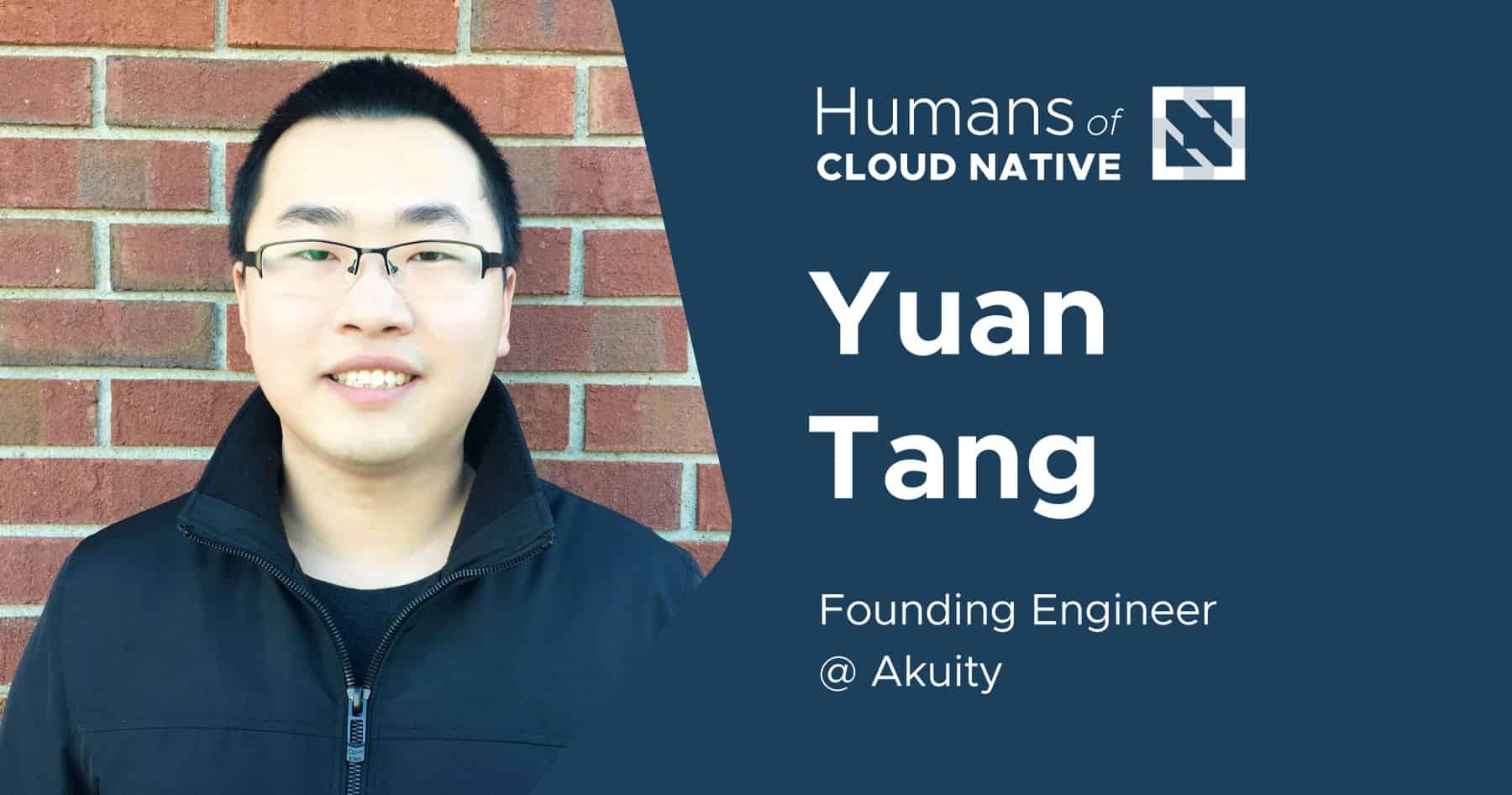
Yuan Tang’s name is associated with some of the most touted projects in open source. Co-chair of Kubeflow and a maintainer of CNCF’s Argo as well as TensorFlow and XGBoost, Yuan is also a founding engineer at Akuity, a startup founded by the creators of Argo. Akuity’s goal is to accelerate and simplify the implementation of GitOps practices into Kubernetes cluster management, using Argo. He has contributed to and co-authored numerous additional open source projects, spoken at various conferences, such as KubeCon and ArgoCon, co-authored TensorFlow in Practice and two more books on machine learning, and served four times as a mentor through Google Summer of Code. In addition, he has also held technical advisor and leadership positions at various companies and open source organizations.
How did Yuan reach his position in the open source and cloud native worlds? It all began when he filed his first bug on GitHub.
Yuan was introduced to cloud native tools and methodology as an engineer at Alibaba Group working on machine learning infrastructure. When his team shifted their distributed and ML workloads to Kubernetes, they gravitated to Kubeflow. At first fixing small bugs and adding documentation, his contributions increased until he eventually rose to a tech lead and co-chair, focusing on distributed ML model training and actively advocating the project through conferences such as KubeCon Europe.
Yuan’s involvement in Argo traces a similar upward trajectory from modest beginnings. In need of workflow orchestration tools, his team adopted Argo Workflows, and Yuan again began making contributions wherever he spotted the need. After two years, he became a project maintainer, and, after departing Alibaba, joined Akuity with some of the original project authors. Besides regular code contributions and reviews and GitHub issue triaging, he has continued to contribute to the Argo ecosystem by speaking at conferences, hosting contributor meetings, writing the Distributed Machine Learning Patterns book, which covers Argo, and curating the list of “Awesome Argo” resources related to the project.
Having benefited from the meritocracy of open source himself, Yuan now tries to bring visibility and credit wherever it is due in open source communities. For example, he mentored a student from India on the Kubeflow project in 2020, and eventually wrote a recommendation letter for his graduate school application to Georgia Tech, where he now studies. “We are still maintaining that relationship on social media. Every once in a while, I’ll post something on Twitter or LinkedIn, and he’ll follow up. And if he has any questions, he’ll ask,” Yuan said. “It’s rewarding.”
He advises users of open source projects to file any bugs they come across, and if they have ideas to improve a project, submit a feature request on GitHub. They can also join community meetings around a particular project to present any use cases, or even new projects, based upon it.
“The spirit of community is inspiring. I truly believe that the more you give, the more you receive, and this idea really applies to the open source community.”
Yuan Tang
As democratic as open source is, however, Yuan says there are smaller projects that do not receive the attention they deserve. He believes the community has the power to elevate these projects and the people behind them through social media, even lending his own clout to the cause. “ I’m not a big influencer, but I do have a number of followers on social media. So if you know any project, feel free to let me know and I’d love to share,” he said.
Yuan manages to remain active in open source – as a contributor, maintainer and mentor – while also juggling family life with two kids, sometimes putting in work on nights and weekends.
“Sometimes it’s overwhelming, but it’s inspiring whenever we see a report from our users, and we know that they are using the project and some of the new features we’ve developed.”
Yuan Tang
You can start your cloud native journey anytime – we welcome all contributors, whether you’re a coder or a creative. You can find out how to take your first steps on the contributors page and join the community conversations on the CNCF slack channels. And if you need any further inspiration, check out this summary of the work Yuan is currently involved in, or his Twitter and LinkedIn, where he regularly shares project updates that you can get involved in!